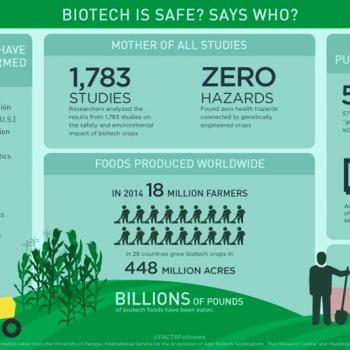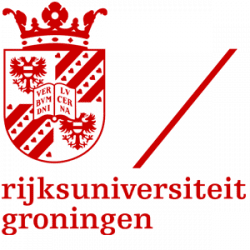Larry Hurtado has a post on scholarship and why he is suspicious of those who claim to have come up with a definitive solution to something despite not being trained in the relevant skills, languages, etc. I’ll quote it at length, since it says a lot that is important:
I have to say that it’s curious that someone with no training in a given field, lacking in at least some of the linguistic competence required (both relevant classical language and key modern scholarly languages), thinks himself able to find something that has eluded the entire body of scholars in that field who labor year-upon-year to try to discover anything new and interesting. It’s also curious that, as is typical, the guy doesn’t submit his findings to scholarly review for publication in peer-reviewed journals or with a peer-reviewed publisher, but flogs his thinking straight out on his web site, complete with bold claims about its unique validity. We mere scholars in the field, by contrast, do submit our work for critique by others competent in the subject. We present at symposia and conferences where other scholars can engage our views. We strive to get published in peer-reviewed journals and with respected publishers. Even after publication, we hope for critical engagement by other scholars.
Now, of course, I believe in freedom of speech and thought, and I wouldn’t press for a gag on the sort of dubious stuff that I criticize here. But in scholarly life the peer-testing of claims/results is absolutely crucial, and it’s really considered rather unscholarly (and so of little credibility) to present as valid/established claims that haven’t gone through such testing. People (specifically those not clearly qualified in a field) have always been able to make bold claims about a subject of course, asserting their idiosyncratic “take” over against whatever view(s) is/are dominant in the subject. But before the World Wide Web I guess it was much more difficult to get such unqualified opinion circulated. Now, however, ”the Web” and the “Blogosphere” make it so easy.
But, frankly, when I’m shown something that hasn’t been through the rigorous scholarly review process (often, it appears, peer-review deliberately avoided), and comes from someone with no prior reputation for valid contributions in the subject, I’m more than a bit skeptical. If the work is really soundly based, then why not present it for competent critique before making such claims?
I can hear the responding claim that scholars in the field are uninterested in new discoveries and/or even that they conspire to keep new ideas from gaining acceptance. But any such claim only further reveals the lack of familiarity with scholarly processes. The field of NT/Christian Origins, for example, is now more diverse, with more approaches, more perspectives, than ever; and probably most scholars dream of being able to correct or refute some established view, or successfully lodge some new view, or publish some hitherto unknown or insuffficiently noted datum. There’s no conspiracy to suppress novel work or findings that go against previous views.
Peer-review typically doesn’t mean quashing any new view. Instead, it means that a submitted piece of work is studied to see if any relevant evidence or important other analysis is overlooked, or if there is something quirky and apparently wrong in method or assumptions. I’ve certainly had articles accepted for publication in cases where the reviewers weren’t necessarily convinced but did agree that my argument couldn’t be faulted on data or method, and so my article deserved to get publication and thus a wider “hearing” by scholars.
So, how does some innocent peruser of the Web who isn’t an expert in a given field judge a claim about something in that field? Well, is it being made by someone who appears to have the requisite training for that subject? Is it from someone with an established reputation in that subject? (And the Web now makes it fairly simple to check up on people.) Or, if it’s from an emergent scholar, is the claim published in a peer-reviewed journal or from a respected published (who uses peer-review)? If not, then I’d advise you not to bet more than a tuppence on it.
Think of the Web/Internet as something like a postal service. You can send all sorts of things through the post (and much more via the Internet that wouldn’t easily or legally get into the post!). So, simply because something is “published” on the Web doesn’t mean anything by itself. The key questions concern the qualifications of the person authoring the material, and whether it’s been adequately reviewed and had critique by those competent in the field.
Hurtado’s last point is exactly why I focus so much attention on information literacy skills in my courses nowadays. If you remember ever getting a “newsletter” from a one-man “organization” that spouted crackpot theories through the mail, mimeographed from a typed and pasted original that was clearly an amateurish effort, you probably laughed at the idea that anyone would take its claims seriously. But today, word processing and web editing are easy, with most of the formatting and design aspects taken care of for you, unless you choose to customize them. And so it is easy to present ideas which have no real merit in a much more appealing packaging.
Peer review isn’t a guarantee of correctness. It doesn’t even always manage to keep things out that perhaps ought to be. It is simply a first point of entry, seeking to guarantee a bare minimum, namely that proper methods are being used and obvious data is not being ignored. And so if someone claims to have a definitive solution to a scholarly question, but doesn’t publish it in an appropriate scholarly venue, the chances are it is because they are not in fact offering something that could pass muster as scholarship. They aren’t even trying to present their ideas to the scholarly community, which is the only way that their real worth, or lack thereof, could be tested.
The irony, of course, is that the internet is full of people for whom such scholarly attempts at quality assurance are treated as evidence of a conspiracy, while the claims of people whose online assertions are subject to no quality controls are simply embraced uncritically.
On a related note, see Ben Stanhope’s post continuing the conversation I started on whether you need a PhD to understand the Bible.












